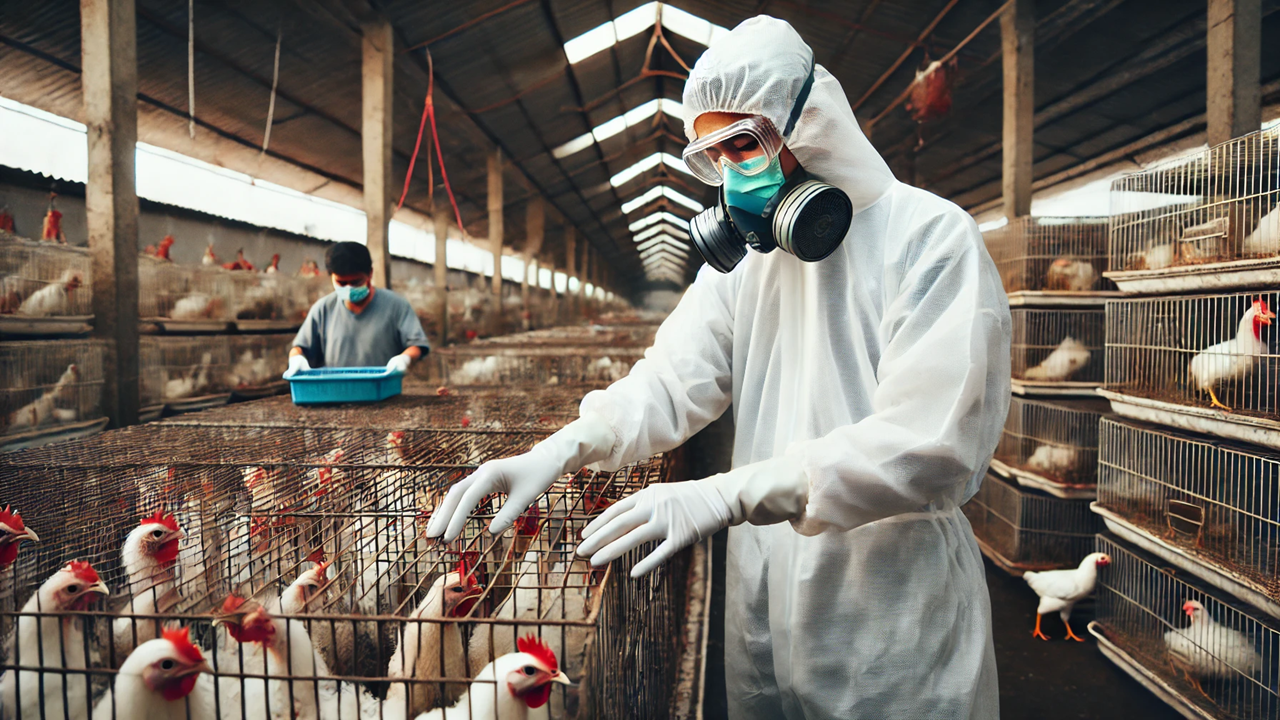South Africa Halts Poultry Imports from Brazil Amid H5N1 Bird Flu Outbreak
The outbreak was detected on 15 May 2025 in breeding chickens at a commercial poultry farm located in the municipality of Montenegro, within the state of Rio Grande do Sul.

- Country:
- South Africa
In a significant move aimed at safeguarding animal and public health, South Africa has announced the immediate suspension of imports of live poultry, eggs, and both fresh and frozen poultry meat from Brazil. This decision follows an official notification from Brazil’s Ministry of Agriculture and Livestock confirming an outbreak of highly pathogenic avian influenza (HPAI) H5N1 – clade 2.3.4.4b – in the southern region of the country.
Outbreak Confirmed in Rio Grande do Sul
The outbreak was detected on 15 May 2025 in breeding chickens at a commercial poultry farm located in the municipality of Montenegro, within the state of Rio Grande do Sul. This region is a significant contributor to Brazil’s poultry production and exports, raising serious concerns for international trading partners.
The highly contagious virus, which can cause severe disease and high mortality rates in birds, has prompted rapid response measures both within Brazil and among countries that import Brazilian poultry products.
South Africa Takes Preventive Action
Reacting swiftly to the report, the South African Department of Agriculture, Land Reform and Rural Development (DALRRD) released a statement on Wednesday declaring that new import permits for the affected poultry products from Brazil will not be issued until further notice.
The Department emphasized that the temporary suspension is a necessary biosecurity measure to prevent the possible introduction of the avian influenza virus into South Africa’s poultry population, which could have devastating consequences for the industry and the broader economy.
Exceptions for Safe Imports
Despite the broad ban, the Department has clarified that certain consignments of poultry products will still be allowed entry under strict conditions. These include:
-
Poultry products that were packaged in their final packaging on or before 30 April 2025.
-
Heat-processed poultry products, as thermal treatment significantly reduces the risk of virus survival and transmission.
These exceptions are based on international guidelines and a risk-based approach that considers the effectiveness of heat processing in inactivating the avian influenza virus.
International Veterinary Consultation
In response to the outbreak, a high-level meeting was convened on 19 May 2025 between the Chief Veterinary Officers (CVOs) of South Africa and Brazil. The urgent consultation focused on obtaining detailed updates on the status of the outbreak and the mitigation strategies being implemented by Brazilian authorities.
During the meeting, Brazil committed to providing additional technical information and documentation concerning the outbreak and its containment measures. This data will be critical for South African authorities to assess the safety of resuming imports from affected regions in the future.
Implications for Trade and Food Security
Brazil is one of the world’s leading exporters of poultry and a major supplier to South Africa. The import suspension is expected to have short-term implications for poultry supply chains, pricing, and food security, particularly if the outbreak spreads or persists.
South African poultry producers may see increased demand domestically as the country compensates for the temporary shortfall in imports. At the same time, consumers may experience price fluctuations depending on how long the restrictions remain in place.
Monitoring and Future Steps
The Department of Agriculture has assured the public that it is closely monitoring the situation in coordination with international veterinary bodies and trade partners. The government will consider lifting the import restrictions only after thorough evaluation of the epidemiological data provided by Brazil and assurance of effective containment of the outbreak.
For now, South Africa remains vigilant, prioritizing the protection of animal health, food safety, and the stability of its domestic poultry sector.
ALSO READ
Uttar Pradesh's Extended Food Safety Drive: Ensuring Compliance and Public Health
Thuntsha Lerole Reloaded Boosts Services and Agriculture in Kgetlengrivier
WTO Members Convene in Geneva to Advance Dialogue on Sustainable Agriculture
Viksit Krishi Sankalp Abhiyan: Transforming Indian Agriculture
Costa Rica's Nuclear-Powered Food Safety Revolution Boosts Livestock Exports










